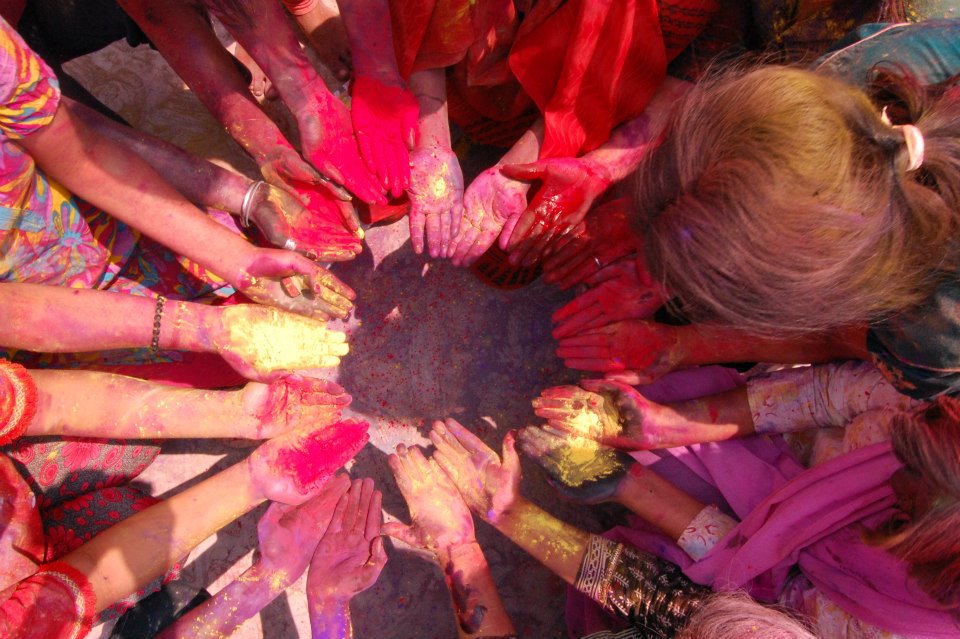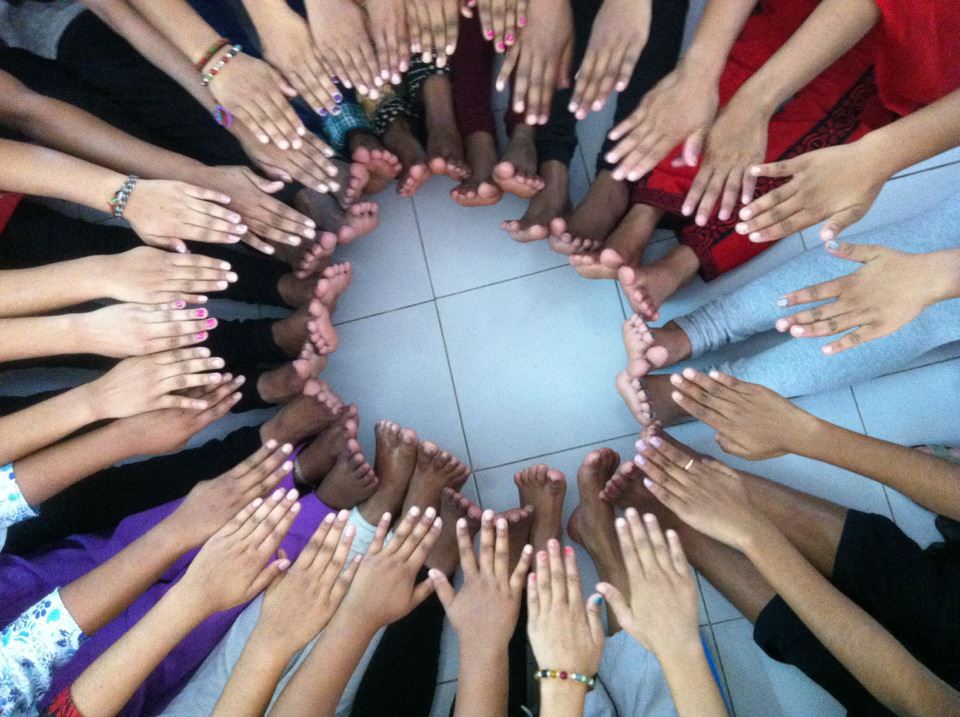Rita Gomes
Rita Gomes was born and brought up in Kolkata, India. She is currently the Program Coordinator for Mahima India. She has a BS in Geography and a Masters in Science degree in Human Rights as well as Social Work.
"Everyone has the right to work, to free choice of employment..." [1]

This phrase stuck with me while I was pursuing my Masters in Human Rights in the year 2010. It is during this time that I learned about the various forms of brutality that are faced by many vulnerable sections of human society, especially women and children, all across the world. Children are pushed into forced labor in brick kilns, carpet factories, and matchstick factories, and also used as drug mules, and even in war. Violence against women includes marital rape, rape in a relationship, other sexual abuse and harassment, trafficking in women and girls for sexual and other forms of exploitation, abortion of female foetuses, infanticide of baby girls, honour killing, war rape, and other acts. These are not limited to violence occurring in the family alone.
While I studied about these issues and the various legal provisions, both national and international, intended to combat them, I felt that these women needed a voice - a voice to stand up for themselves, to be able to choose for themselves, and have the right to be recognised and respected.
It was during my last year of college that I was confronted with the issue of prostitution and the sex trade. I researched about the largest red-light area in the city of Kolkata and in Asia – Sonagachi. But my research left me with many unanswered questions. This led me to the website of an organisation, a sex workers' cooperative, which operates in that area and empowers sex workers to, for example, insist on condom use, and to stand up against abuse. It felt so right to me – an organisation that is standing up for women's rights and letting them choose the work they wanted to do –choose their way of life.
I soon applied for an internship at this organisation and I was offered an opportunity to intern immediately. The first few weeks I was based in their head office and had no opportunity to visit the red-light area that was just a few kilometres away. I expressed my wish to visit the area and to talk to the women there to my supervisor, and was happy to receive his approval. I was given an escort for the visits every day for the next couple of weeks. My escort, a peer leader and a retired sex worker, took me every day through the narrow alleys, lined with small ‘apartments’ and corner stores forming a complex maze. The buildings leaned into the street and the roads were dotted with skimpily dressed women and young girls. As I visited some of the brothels, I was able to experience the lifestyle of these women. The 'madams', who often were sex workers themselves,, usually had 6-7 girls working for them. These madams lived in tiny rooms and would rent out tiny cubicles where the girls would receive customers throughout the day. Sometimes four girls shared one room with four beds divided by curtains. There was no dignity or privacy for the women there.
One of the girls told me that sex in Sonagachi can be had for as little as Rs. 10 to Rs. 20 (less than 50 cents). If the client opted for a bed and a TV then he had to pay extra than the normal rates. The rate escalated depending on the facilities demanded by the client. Most of the women said that they consider themselves an ‘object’ to entertain men and this is how they earn their daily meal. Almost all of them said that they came to Sonagachi on their own, as they needed money to take care of the financial needs of their families. Since they had no education or any professional training they felt that this was the best way they could earn a livelihood. They saw no other options open to them. But to me it seemed that something was missing. The tone of their voice and the look in their eyes was saying something else. Somewhere deep down poverty, ignorance and deception had a role to play here. Though these women seemed overtly cheerful and happy–brightly made up faces with broad smiles— yet their eyes seemed to hide a different reality.
As my internship period was about to end at that organization, I heard about International Justice Mission from one of my close friends. I looked up their website and started the application process for an internship opportunity with the Kolkata office, in the Aftercare Department. After a long and drawn out process I got the opportunity to be a part of this incredible team. It is there that I realized that my ideologies were wrong. Women deserve better and prostitution is a menace in today’s society. Fear of violence is a part of everyday life for these women. They are vulnerable because the justice system is not protecting them. I learned that few of them have joined this profession by choice, whereas most have been dumped in this industry forcefully or as a result of betrayal. Most of them have been trafficked or forced into selling their bodies by illegal means. Mostly Nepalese, Bangladeshi, and Rajasthani prostitutes have dominated this area. The total estimated population of sex workers in this area is between 20,000 and 45,000[2].The social stigma attached to prostitution is so great that prostituted women have been prevented from accessing public sector services and have children who are denied entry to school. With our team of qualified social workers I was able to work with survivors of the trade who had been placed in aftercare homes in the city for their care and protection, and for emotional healing. This work provided not only a feeling of contentment, but also an opportunity to be a small change in the lives of these special girls.

After completing my internship at IJM, I got to be a part of an aftercare home in the city–Mahima India--which was the first of its kind in Kolkata. Mahima India opened its doors in March 2010 to help empower young survivors of sex trafficking to be exceptional contributors to society, and to motivate them to be advocates for the eradication of trafficking and violence against women. Mahima’s mission is to provide excellent and professional aftercare to facilitate the rehabilitation of the survivors and to ensure their successful reintegration into society [3].
In their very brief four years and five months journey, 104 girls and 6 babies have been through their program [4]. With primary focus on their emotional healing and trauma therapy, many of Mahima’s girls are now living independently and have full time jobs.
Sumita* was rescued in 2007 when she was on only 14 years of age. After she was placed in an aftercare home, we realized Sumita was pregnant. This discovery can be scary for any new mother, but to a 14 year old it seemed like the biggest tragedy of her life. She wanted to “throw” the baby away. It was at this time that she was given a replica of a 3 month old fetus. As she held it in her hand she knew that she would not only have the baby, but also be a great mother. On the 26th of August, 2008, Sumita gave birth to a baby boy, and thus began her process of healing and restoration. In 2010, when the Mahima Home opened its doors, Sumita and her son were among the first residents. Here, Sumita was given the opportunity to start school, and though she was embarrassed to be placed in Kindergarten with young children, she was determined to learn. She studied for two years, and also received training in tailoring during this time. Sumita has been working for the last 3 years. She moved to the Mahima Transition Home (for girls over 18 years of age) in 2011, and her son attends school. She visits her family but feels that she can give her son a better life if she lives in the city. She is now 21 years of age, and we just celebrated her son's 6th birthday in August. Sumita's story is not only one of encouragement, but also empowerment. She is small in stature but has immense courage and strength. Her hope is that one day she will find a man who will love her and her son so they can lead a happy life together as a family.
These girls keep me motivated and encouraged to continue this journey. Everyday these girls teach me to be the change in their lives as well as my personal life too. Sex trafficking needs to be combated and we hold the power in our hands – so let’s be the change!
[1] Article 23 (1) of the Universal Declaration of Human Right.
[2] Sarkar et al., 2005; Times of India, 2002; DMSC, 2012
[3] and [4] Mahima India presentation, 2014
Watch this meaningful discussion exploring the current state of human trafficking with the impact of the pandemic and continuous systemic racial inequalities.
In addition to Women's History Month, March is Social Work Month in the United States.